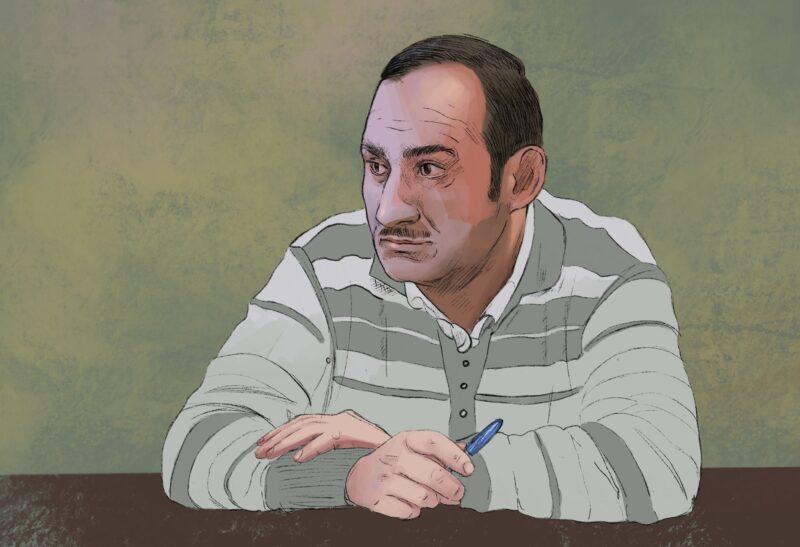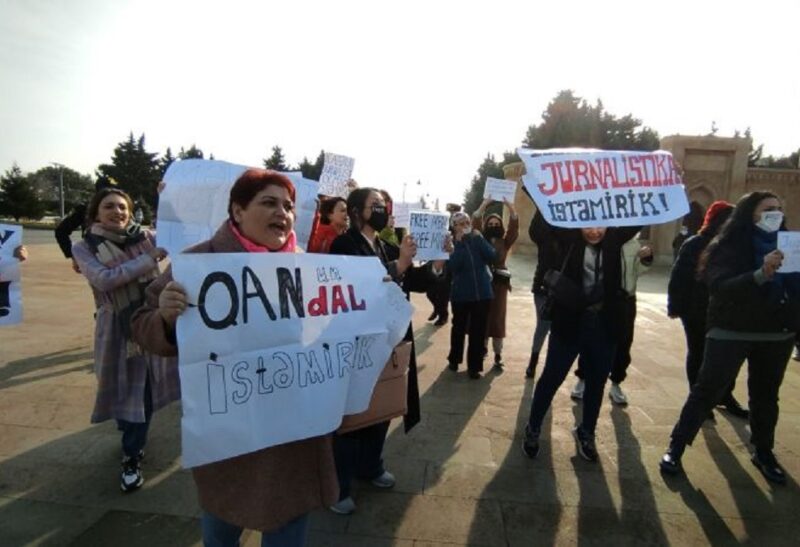

I was out in the yard in my wheelchair the other day when a child saw me, got scared and ran to his mother. Still staring at me in awe, he pointed his finger at me trying to catch his mother’s attention. It was as if he saw a fearful, strange creature. His mother was trying to comfort him by saying: “Don’t be scared, the man is sick”.
Although, the word “sick” hurt me a little, I smiled at the kid.
Wherever I go, I am not a stranger to this kind of a reaction from the kids. Even teenagers’ reaction is no different. Seems like these teenagers are not being educated at the schools they attend. Some of them point their fingers at me elbowing their friends. I never mind them either. What truly hurts me is seeing adults, middle aged people and the elderly, in other words those who seem perfectly rational at first sight, look at me as if I came from another planet. These ridiculous and pathetic looks fill me with negative energy. Apart from patheticness and ridiculousness I see traces of fear as well, and I am not exaggerating.
I do not want people to misunderstand the message behind this article, and think of me as a negative person who only sees the bad in everything, and tries to evoke pity for himself. Not at all… Some people upon reading this article might think that I demand positiveness from the society. I know, I do not have a right for such a thing, and I do not even pursue this goal. The only thing I demand (it might sound rough, but I will go ahead and say it) is please stop giving people in wheelchairs or those with physical restrictions of any kind those pathetic, fearful and stupid looks that only depress them.
If you insist on this kind of behavior, then you are nothing more but childish. If you continue looking at us, people in wheelchairs with bewildered eyes, your children will keep on being scared of us, and take us for monsters you frightened them from early childhood.
Even these looks can be tolerated. However, how am I suppose to feel when several times a day strangers approach me with their change taking me for a beggar. When I politely refuse saying “I am not a beggar,” what I most often hear is “I was giving it from the bottom of my heart, if you don’t want it, don’t take it” or “So what? Take it, you might still need it.”
In fact, in Azerbaijan children are not the only ones who are scared of disabled people. Even adults fear to build friendships, loving or intimate relations, or family life with people with disabilities. I don’t know whether they do not feel like caring for or wasting their physical and psychological energy on them. To free our society from fear of disabled people “witch powers” are needed. Perhaps, then they will be free from these banal fears. The most effective “witch powers” are reading and education.
Not too long ago, I saw news circulating in social media that provoked a stir. A young woman in perfect health married a disabled guy, who was paralyzed for the most part of his body. I mean, wow… This was shared on social media platforms as sensational news. The worst part was the fact that the news was presented under “Extraordinary Wedding in Baku” title. As if this young woman married her dead fiance like that girl in Europe, or married a carousel the guy in South America. I wonder if people, who use this kind of a title and present the news as something sensational have ever put themselves in the shoes of that disabled guy. Seriously, if those people decide to get married one day, should their wedding be regarded as something extraordinary.
There is a very disgusting title for disabled people used in the society – “physically defective.” It is widely used in press, on television, as well as by individuals and legal entities. These people are so dumb, that they do not understand that “defect” is not a nice word. Those who do not know should open an explanatory dictionary and see for themselves that the word “defect” means “flaw” or “shame.” Not knowing the real meaning of this word, or even addressing disabled people with this word on purpose is a defect on its own. The expression widely used in international publications to address disabled people is “physically restricted.”
If a child upon seeing me gives me bewildered and fearful looks and points his finger, asking his parents “what happened to him?” “why doesn’t he walk?” or “why is he like this?” I blame the ministry of education, societies for disabled people and foremost, TV channels that have a greater influence on minds.
Starting in kindergartens, children should be educated that there are physically limited people with disabilities, those who are forced to use wheelchairs. It would be nice if societies for disabled people and NGOs spent some of their grant funds in this direction. Why not to distribute special brochures about the issue, or run social ads devoted to disabled people in different parts of the city? Would it be impossible if our local TV channels apart from broadcasting shallow music and shows, could run educational materials about disabled people as well?
Do not be scared of people with disabilities, rather refrain from being ignorant and raising your children in the same manner.



